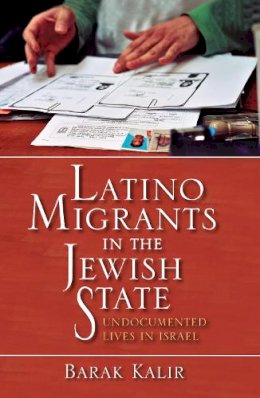
Latino Migrants in the Jewish State
Barak Kalir
In the 1990s, thousands of non-Jewish Latinos arrived in Israel as undocumented immigrants. Based on his fieldwork in South America and Israel, Barak Kalir follows these workers from their decision to migrate to their experiences finding work, establishing social clubs and evangelical Christian churches, and putting down roots in Israeli society. While the State of Israel rejected the presence of non-Jewish migrants, many citizens accepted them. Latinos grew to favor cultural assimilation to Israeli society. In 2005, after a large-scale deportation campaign that drew criticism from many quarters, Israel made the historic decision to legalize the status of some undocumented migrant families on the basis of their cultural assimilation and identification with the State. By doing so, the author maintains, Israel recognized the importance of practical belonging for understanding citizenship and national identity.
Product Details
About Barak Kalir
Reviews for Latino Migrants in the Jewish State
Contemporary Sociology
A unique study of undocumented immigrants from Latin America living in Israel, this study brings a wealth of previously unknown data about the tribulations of a population viewed as problematic in much of the Western world. . . . Highly recommended.
Choice
Latino Migrants in the Jewish State: Undocumented Lives in Israel provides a rare glance at the lives of labor migrants who reached Israel from different Latin American countries, mainly from Ecuador, Columbia, Chile, Peru, and Bolivia. Based on fieldwork among Latinos in Israel, as well as among returnees, deportees and potential migrants in Ecuador, Kalir recreates in this book the full circle of migration flow from the decision making start point to the process of settling down, establishing social networks and integrating socially and culturally into the receiving society.
Journal of Jewish Identities
